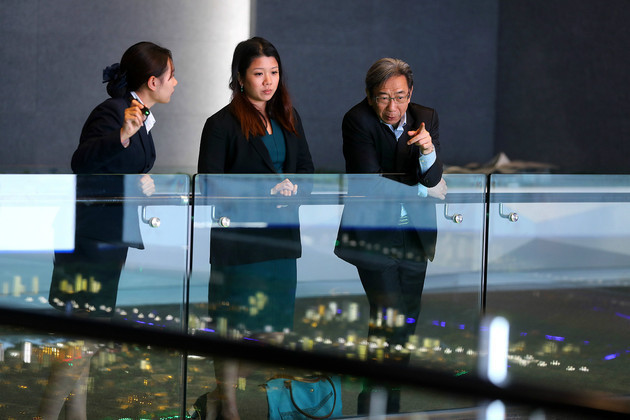Dec. 13 (NBD) -- The 2nd Plenary Session of 13th CPC Chengdu Municipal Committee convened from December 9 to 11th. A three-step approach was put forward at the Session to promote the urban function upgrading of Chengdu, capital of southwest China's Sichuan province.
In September this year, the Milken Institute Asia Center released a research report titled Best-Performing Cities China 2017: The Nation's Most Successful Economies, in which Chengdu won the first place, outperforming Beijing, Shanghai, Guangzhou, and Shenzhen.
Perry Wong, managing director of research at the Milken Institute and one of the authors of the report, accepted the exclusive interview with NBD, sharing his views about Chengdu's new changes in the urban layout.

Photo/NBD
City's development entails a clear plan
NBD: Chengdu has put forward a three-step approach for development, aiming to evolve into a modern, sustainable global city by the middle of this century. What do you think of this strategic goal?
Perry Wong: It is a must in any development strategy or blue print for any nation and/or region. Sustainability is not a new concept in a global context, but I think it has become critical in particular in China and in Chengdu. To me, creating a sustainable regional system whereby endogenous growth driven with a regenerative capacity is the key.
NBD: Which cities' development models can be learnt from by Chengdu to achieve its long-term vision? How can Chengdu enter the global city system?
Perry Wong: Chengdu is a very unique city in China at this point. I make this comment often because its geography, central government policies focused, industry mix at the moment, but I also see Chengdu as a region where its development stages with a balanced (goods producing and service producing) sectoral mix in a resource abundant environment yields great potential.
The major functional area strategy is a great change! A region's growth hinges on the industrial and entrepreneurial activities. A better stronger and more inclusive supply chain in a rationalize setting can yield better higher quality growth.
In long run, I would pick Shenzhen/Guangzhou, the research triangle in North Carolina, Mid-Atlantic-NY-NJ-PA-DE, Tokyo to a mix bowl. A virtue model if you will... you will need some imagination to get it.
NBD: Chengdu is changing its urban layout from "a city settled between Longquan Mountain and Longmen Mountain" to "dual cities along Longquan Mountain". What does it mean to Chengdu's development?
Perry Wong: It allows the city to utilize geography and enrich a multiplex like development without too much negative consequence. It is far better in avoiding land/rent cost escalating-in both relative and absolute measures. It can help various industries and economic activities better in development.
NBD: Chengdu is planning to take Xiongan New Area as a role model for the development of its eastern area. What do you think of this plan?
Perry Wong: I do see the principle of the development directive of XiongAn can be applied to a new development area in East District of Chengdu. In a spatial dimension of Chengdu, it is advantageous to lay out a clear plan for the "structure" or the "frame" of a city in decades to come.If Chengdu is to become the "home base" for the great western development (domestic and international combined), it can only be reasonable to lay out a clearer plan. In fact, it is a must.

Photo/VCG
Big potential lies in Chengdu's innovative service economy
NBD: With the innovation drive, many cities are seeking to develop the new economy. Chengdu also proposes to speed up the building of innovative ecological chains and accelerate the new economy development. What are the advantages of Chengdu in developing the new economy and what are your suggestions for the development?
Perry Wong: I don't have a particular take on this but I have two principle on "new economy".
First, the best/most successful and innovative economy is often derived from the need in every day living, so if the city life of Chengdu is a leading one, there is better chance to take a for front position.
Second, talents (including stealing them from others) and where products are make is the mother of every new economy.
NBD: Chengdu attaches great importance to the goal of building a city with a high level of livability. In your opinion, what is the high level of livability?
Perry Wong: The key, I think, is to maintain the City's character and culture-lay back while seeking progressive development and being proactive; rising living standard when cost of rent is trailing behind wage growth.
NBD: How could Chengdu develop into China's inland open-economic highland?
Perry Wong: First, get a balancing mix of goods producing and service producing according to global economic condition-particularly the Euro-Asia and Europe.
Second, innovative service economy is weaker part of the Chengdu economy (relatively speaking), a strategy is needed.
Third, cost, making sure Chengdu is always at the position of "being big, but still convenient for small business; high growth but cost is very competitive among top rank cities".
Email: zhanglingxiao@nbd.com.cn


 川公网安备 51019002001991号
川公网安备 51019002001991号





